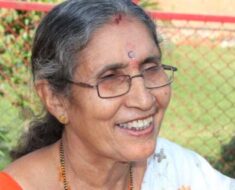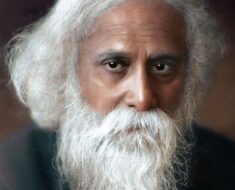Girish Karnad, a multifaceted Indian personality, left an indelible mark on the world of cinema, theatre, and literature. His contributions spanned decades, earning him widespread recognition and numerous accolades.
Wiki/Biography
Girish Raghunath Karnad was born on May 19, 1938, in Matheran, Bombay Presidency (now Maharashtra, India), during British India. His mother, Krishnabai, a widow, met Dr. Raghunath Karnad while working as a nurse. Despite societal prejudices against widow remarriage, they fell in love and eventually married after five years. Girish was their third child out of four. He received his early education in Marathi. His childhood passion for theatre led him to join traveling theatre groups (“Natak Mandalis”). He greatly admired the traditional theatre form, Yakshagana. At the age of 14, his family relocated to Dharwad, Karnataka, where he was raised with his two sisters and a niece. He pursued higher education at Karnatak Arts College, Dharwad, graduating with a Bachelor’s degree in Mathematics and Statistics in 1958.
In 1960, he won a Rhodes Scholarship, enabling him to pursue a Master’s degree in Philosophy, Political Science, and Economics at the University of Oxford in England. A significant achievement during his time at Oxford was his election as President of the Oxford Union in 1963.
Family
Karnad’s parents were Dr. Raghunath Karnad and Krishna Bai Mankeekara. His father was a doctor, and his mother, a nurse. He had two brothers, Vasant Karnad and Bhalchandra Raghunath Karnad, and two sisters whose names remain undisclosed. He married Dr. Saraswathy Ganapathy and had a son, Raghu Karnad.
Career
Upon returning from England in 1963, Karnad began working with the Oxford University Press in Chennai. He later left in 1970 to join “The Madras Players,” a local amateur theatre group. His career included notable roles such as:
- Director of the Film and Television Institute of India (1974-1975)
- Visiting Professor at the University of Chicago (1987)
- Chairman of Sangeet Natak Akademi (1988)
- Director of the Nehru Centre and Minister of Culture at the Indian High Commission in London (2000-2003)
Writing
Karnad’s prolific writing career primarily focused on Kannada-language plays, which were later translated into English and other Indian languages. C. Rajagopalachari’s “Mahabharata” deeply influenced him. His first play, “Maa Nishaadha,” was written in 1960, followed by “Yayati” in 1961, which won the Mysore State Award in 1962. “Tughlaq” (1964), based on the 14th-century Sultan of Delhi, brought him widespread recognition. Other notable plays include “Hayavadana” (1971), “Naga-Mandala” (1988), “Agni mattu Male” (1995), “Odakalu Bimba” (2006), “Maduve Album” (2006), and “Flowers” (2012).
Acting
Karnad’s acting debut, alongside his screenwriting debut, was in the Kannada film “Samskara” (1970), which won the first President’s Golden Lotus Award for Kannada Cinema. His directorial debut was “Vamsha Vriksha” (1971), earning him a National Film Award for Best Direction (shared with B.V. Karanth). He directed several other Kannada and Hindi films, including “Godhuli” (1977) and “Utsav” (1984). His television debut was in the popular series “Malgudi Days” (1986). He also acted in notable films like “Ek Tha Tiger” (2012) and “Tiger Zinda Hai” (2017). He even lent his voice to the audiobook of A.P.J. Abdul Kalam’s autobiography, “Wings of Fire.”
Controversies
Karnad’s outspoken nature led to several controversies. In 2012, he criticized V.S. Naipaul’s views on Indian Muslims at the Tata Literary Festival. The same year, he sparked another controversy by commenting on Rabindranath Tagore’s playwriting. In 2015, his suggestion to rename Bangalore International Airport after Tipu Sultan caused public outrage, prompting a subsequent apology.
Awards/Honours
Karnad’s numerous awards and honors reflect his significant contributions to various fields. A summary of some key recognitions is below:
| Category | Award | Year |
|---|---|---|
| Literature | Sangeet Natak Akademi award and Varthur Navya Award | 1972 |
| Literature | Padma Shri | 1974 |
| Literature | Padma Bhushan | 1992 |
| Literature | Jnanpith Award | 1998 |
| Film (National Film Awards – examples only) | Best Direction: Vamsha Vriksha | 1971 |
| Film (National Film Awards – examples only) | Best Feature Film in Kannada: Vamsha Vriksha | 1971 |
| Film (Filmfare Awards South – examples only) | Best Director: Vamsha Vriksha | 1972 |
| Honour | Honorary Doctorate from the University of Southern California | 2011 |
This table showcases only a selection of his numerous awards. A complete list would be significantly longer.
Favourite Things
Karnad’s personal preferences included:
- Food: Kanda Batata Poha, Misal Pav, Vada-Pav, Aloo Methi, Lacha Prantha, Sabutdana Khichdi
- Actors: Amitabh Bachchan, Rajesh Khanna, Govinda, Puneet Raj Kumar, Diganth
- Actresses: Arundhati Nag, Bharathi Vishnuvardhan, Jayanthi, Hema Malini, Rekha
- Singers: Mohammed Rafi, Kishore Kumar
- Colors: Grey, Black, Brown, Blue
- Sport: Cricket
- Book: ‘Why Survive? Being Old in America’ (Robert Neil Butler)
- Poets: Amoghavarsha, Kappe Arabhatta
Death
Girish Karnad passed away on June 10, 2019, in Bangalore at the age of 81, after a prolonged illness.
Facts
- He hailed from a Saraswat Brahmin Konkani family.
- His portrayal of Swami’s father in “Malgudi Days” (1987) was highly acclaimed.
- He met his wife at a party while working at the Oxford University Press in Madras and married her at age 42.
- He openly opposed Narendra Modi during the 2014 general elections.
- He was a vocal critic of religious fundamentalism and Hindutva.
- His hobbies included reading, writing, listening to music, and practicing yoga.
“`







